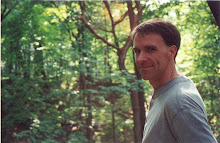[Jo Sleeping] THE END
And the answer was yes. The way that I felt isolated was unappreciated and unlistened to. Perhaps because of this, my perception of Hopper's characters isolation was that they did not feel others would listen to them (certainly not sympathetically); and they did not feel like spanning the gap between themselves and others because they felt that they would not be heard. The people I met during my journey also felt isolated--from and by their fellow citizens and their leaders. They felt that their lives were not appreciated by others who did not take time to imagine what they might be going through, just as Hopper's characters seem to be alone and in trouble and in need of help, but we are not aware of that until we stand in front of them and imagine their lives. People were desperate to be heard and hoped I would help others hear them. Perhaps Hopper was so silent during his lifetime from fear of being misunderstood and/or dismissed. My journey was an attempt to give voice to Hopper, his characters, and the people that I met along the way. It was also a way to give voice to my own frustration at my feelings of isolation.
In February 2003, I gave a presentation as Artist-in-Residence at Chicago's Cliff Dwellers arts club about what I had experienced along the journey. I ended my talk by offering a bit of advice. "The next time you are in a diner with a bunch of Hopperesque characters, if you're wondering whether they feel as isolated as you, they probably do. What you do after that is up to you."
Later that night, I was at a bar for a friend's birthday party. I found myself beside a pretty woman who I felt a connection to. Before I could take my own advice and ask what she was thinking, a mutual friend introduced us, and we forged an immediate bond. She loved my idea for the book and felt that Americans were "some of the most isolated people on earth."
By the end of the year, we were married.
My friend Mike, who had encouraged me to undertake this book, came over to our apartment one night afterward to celebrate. "Do you realize how much this man has changed?" he asked my wife. "Why, five years ago he called me from his dusty hovel filled with milk crate library shelves and told me how unhappy he was. He probably wasn't capable of connecting to someone the way he has with you. That's when he got the idea to write the book about Hopper and isolation. By the way, Kevin, did you get your answer?"
I smiled down into my champagne glass and then looked at my wife.
"Yes."
20090616
276 The Answer
Subscribe to:
Post Comments (Atom)




2 comments:
Just came across your blog after searching for others talking about Hopper (inspired by the news that the Whitney museum is running a Hopper exhibit). What a journey! It is interesting, the way that our perspectives can change, and how a search for insight into isolation can cause a deep connection to be forged. Congratulations on your marriage, and for providing an inspiring read.
Thanks for posting. Sorry I didn't see this earlier. I try to get updates e-mailed, but it doesn't seem to work. Glad you enjoyed the journey. Thanks again!
Post a Comment